Greasy and waxy hair is definitely not something that makes a girl look attractive! Oily strands not only look not quite good, they also feel rather unpleasant. In addition, styling such hair is also a huge problem.
So no wonder that all the girls who have this problem usually wonder why their hair feels waxy. Of course, you can think of many different reasons from any health issues to external factors like a wrong shampoo or polluted air.
However, to fix the issue, you need to be absolutely sure what makes your strands get oily right after you come out of the shower and dry your hair.
So today we are going to share a few handy tips with you on how to fix waxy hair easily and quickly. You will also learn what may cause this issue to appear at all, and in addition, you will find out what makes your hair feel waxy and oily after washing and after drying (since the reasons will vary!).
And of course, we will answer the most frequently asked questions regarding this topic.
With all that in mind, you can be sure that your strands will look smooth and silky, but not because of the greasy buildup! They will look so gorgeous because of the perfect health and care!
Why Does My Hair Feel Waxy After I Wash It?
Have you ever noticed that you have waxy hair right after you leave the shower? We agree, it may seem to be both ridiculous and annoying: you have just washed your hair, and it already looks as if it has not been washed for days!
Of course, you are wondering why hair feels waxy after washing, and definitely, you would like to figure out what can be done to deal with that problem once and for all.
Well, we want to tell you at once that there is no single reason why your hair may become greasy or feel way and oily after taking a shower. Instead, there are a handful of possible reasons, and you need to take each of them into consideration when looking for a solution.
But if you would like to have at least a general understanding of what may lead to your hair getting oily and waxy, we can list a few possible reasons for that:
- Over washing your chevelure
- Rinsing your hair with hot water after it is washed
- Using the wrong conditioner
- Having an unhealthy diet
- Washing your hair wrong
- Using wrong hair accessories
And now let us explain in detail what each of these reasons means. But first, you should know that the reasons for the greasy buildup will be different in case your hair gets oily after washing and when it becomes like this after drying. So, off we go!
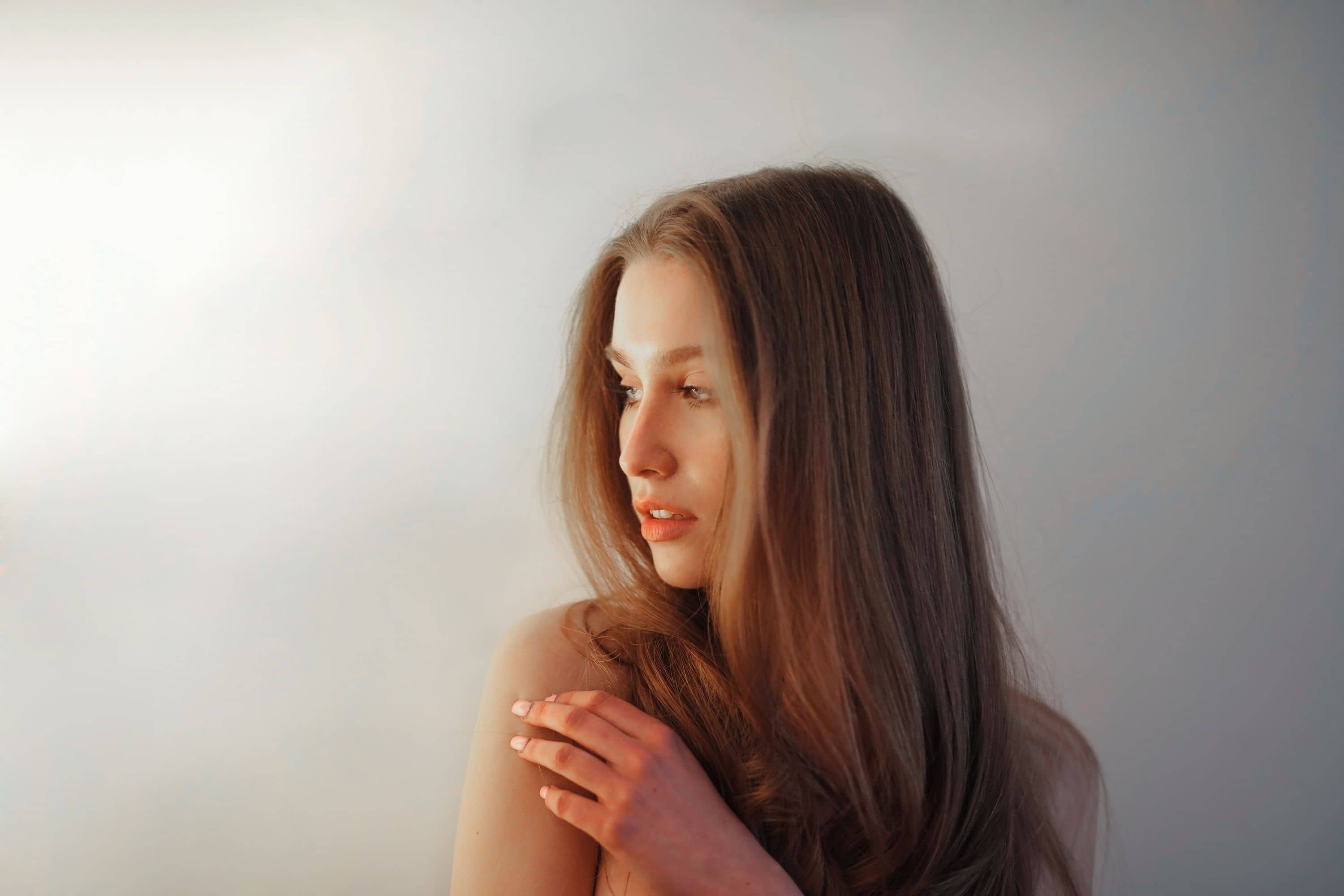
It’s a Product Buildup
If you use hair styling products often enough, they could be the reason why your tresses develop the waxy film. See, such products as styling foams and mousses can collect on your hair and leave a waxy residue behind.
Such products often contain chemical ingredients like silicones, polymers, and various oils that are water-resistant.
As a result, they tend to cling tightly to each strand of your hair! This buildup is often the reason why your hair feels waxy, brittle, or greasy even after washing.
You Have Health Issues
It’s not only hairstyling products that can be “guilty” in the waxy state of your hair. Certain medical conditions might also be on the list of culprits behind the waxy buildup on your tresses. Such medical conditions most commonly include:
- Hormonal imbalances
- Skin conditions
- Fungal or bacterial infections
If you suspect that you might have one of them, go and check your health at the hospital. Like this, you will know for sure whether it is the state of health that makes your hair feel waxy, or it is another reason.
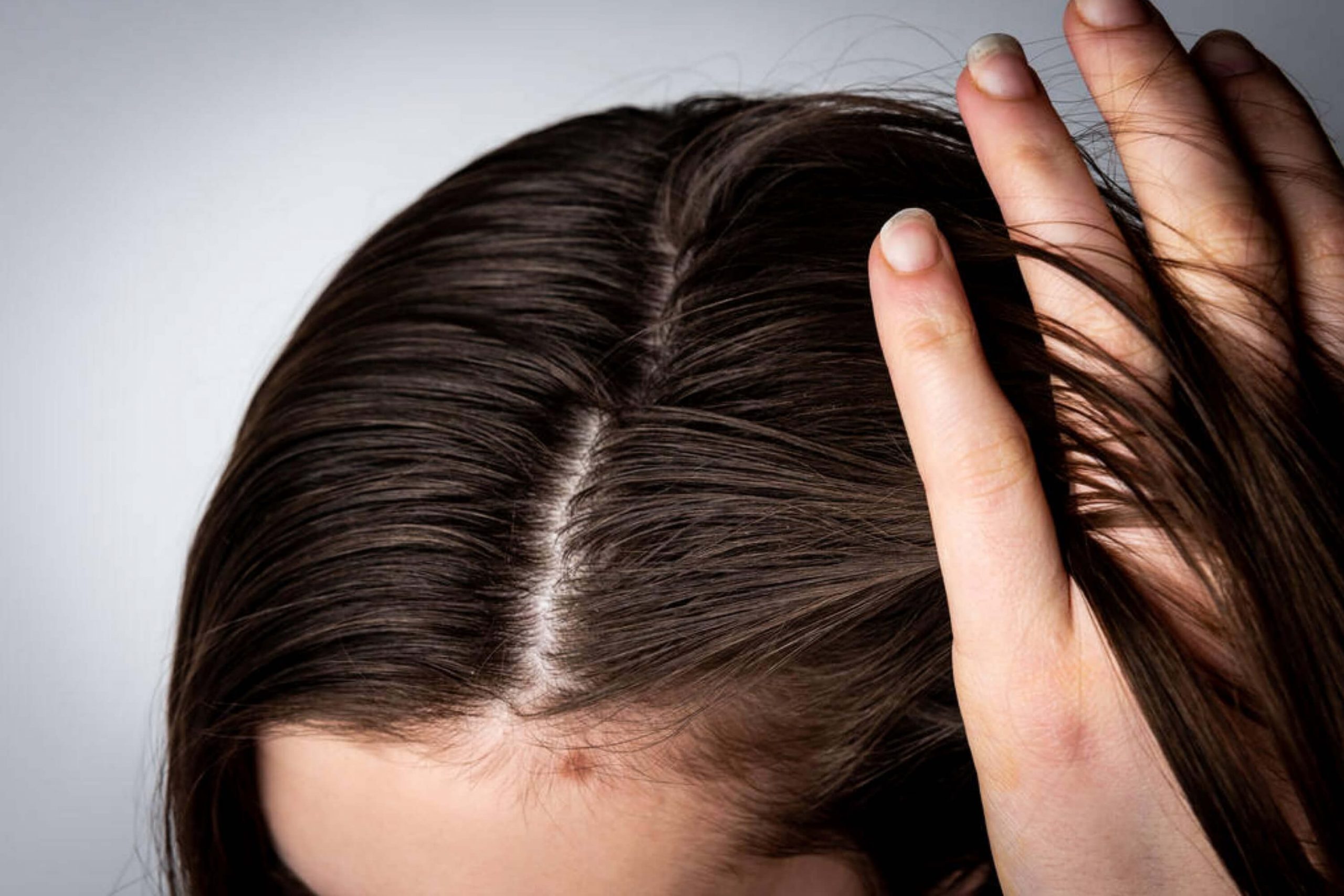
You Take Medications That Affect Your Tresses
Some medications can cause a waxy film to develop on your hair.
So if you regularly take such medications as steroids, blood thinners, and/or birth control, note that they can cause your body to produce too much oil!
As a result, this excess oil will start coating your hair, making the tresses feel stiff or waxy.
Your Hair Is Damaged
If you have been through such procedures as relaxing, bleaching, using heat tools, or coloring, and now you notice a waxy film on your hair, there is nothing to be surprised at. This waxiness simply indicates that your hair is damaged after all that it has been through.
Next time before you make an appointment at a hair salon to have some bleaching done, note that such chemical processing, as well as heat, can damage your hair cuticles! As a result, your tresses will appear dull or waxy. Or both.
Environmental Pollution
It is well known that the environment we live in is far from perfect. And when your scalp is constantly exposed to high levels of pollution, it will sooner or later start secreting more oil.
This is simply a way to protect itself! In addition, some forms of air pollution can even bind to your hair and cause a waxy film to develop!

You Have Hard Water
Many homes in America have hard water, and we can’t do anything about it. Hard water is called so because it contains high levels of dissolved minerals (they are often calcium and magnesium).
When you wash your hair with such water, these minerals collect on your tresses, and later, when your chevelure dries, they leave behind a residue that feels waxy or sticky.
You Are Under the Impact Of Constant Stress
Everyone knows that stress is a bad thing since it impacts nearly every part of your body, both inside and out. This is so bad because high levels of stress make your body produce more of the stress hormone called cortisol.
As a result, excess levels of cortisol will eventually lead to higher levels of sebum (also known as scalp oil) production. Respectively, this scalp oil will produce a wax-like hair film.
You Wash Your Hair Improperly
You will be surprised to learn that most of us wash our hair improperly without even being aware of it!
Washing your tresses with piping hot water, not rinsing hair products fully away, and using the wrong type of cleaning products can contribute to waxy buildup.
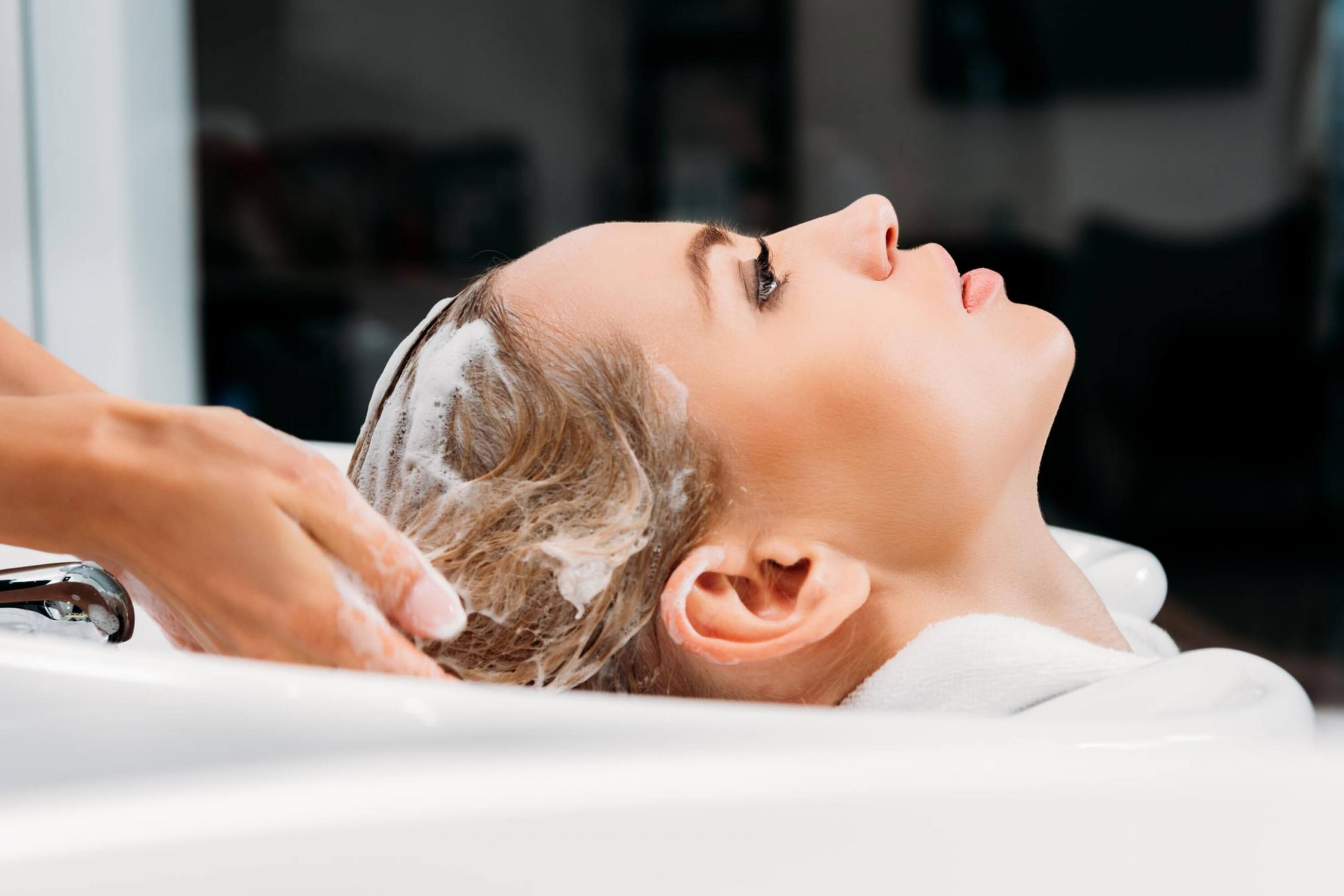
Washing Hair Too Often
This is definitely what most of you do: your hair gets a little oily soon after it is washed, so you wash it again and again. However, this is a vicious cycle! This frequent washing dries out both your hair and scalp, thus triggering the production of excessive oil.
So before you reach for the bottle of shampoo next time your mane feels or looks oily again, we suggest you find out first what exactly makes it be like this.
Consider the Type Of Your Hair
We often forget about this factor, but the type of hair a person has can also contribute to waxy film developing on our hair.
As a rule of thumb, if you have straight or fine hair, it is more likely to get waxy or excessively oily than thick and curly tresses.
The explanation for this is pretty simple: on straight and fine hair, sebum can cover the whole strand of hair more easily than if the tresses are thick and/or curly.
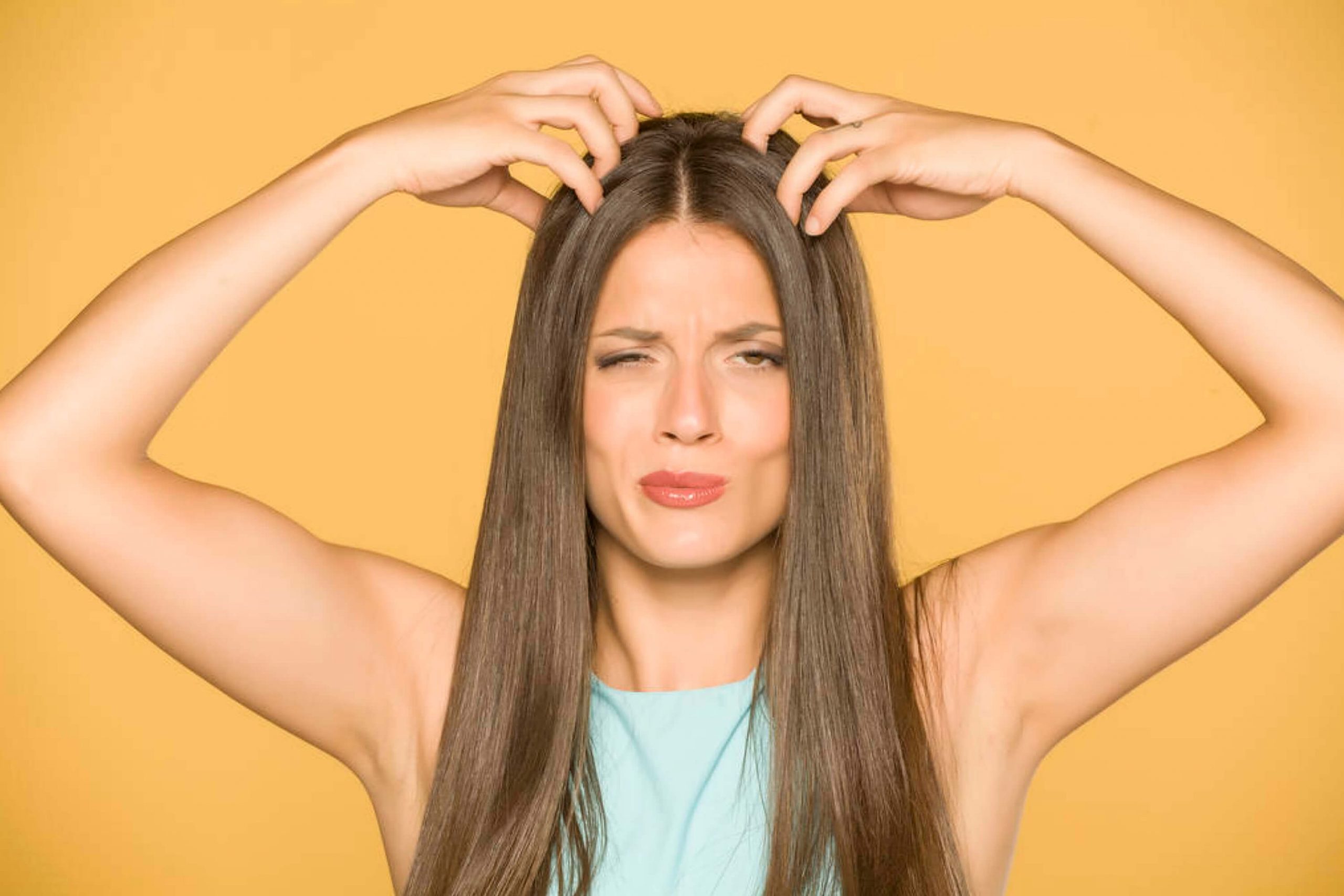
You Are Using Dirty Hair Items
We mean such items as towels, hairbrushes, combs, and even hats and scarves!
You might not be aware of it, but all of them can pick up sebum from the scalp through regular use. If you forget to wash these items between uses regularly, it can contribute to hair becoming greasy quicker!
Oils In Shampoo
Those of you who use natural shampoos should know that this type of eco-friendly product could be part of the waxy hair problem. See, natural shampoos are often blended with various natural oils.
But since oils don’t dissolve in water, they can leave behind an oily residue, making your hair feel and look waxy.
Chemical Shampoos
In this case, everything is exactly the contrary to what we described above. If you are using a shampoo that is full of surfactants (that are hard chemicals), be ready to have waxy tresses pretty fast.
Of course, on the one hand, these chemicals can clean your hair thoroughly and make them squeaky clean. But on the other hand, they are also very good at stripping the hair’s natural oils!
As a result, such shampoos trigger the scalp to start producing more oil, often way too much, to save the hair from damage. But what you have in the end is greasy hair.
Check Your Diet
Your diet can also lead to waxy hair. If your diet contains a lot of dairy food and/or high-glycemic meals, it can affect androgen hormones.
This will influence the skin, making it produce more sebum. And voila, here we have waxy hair again!
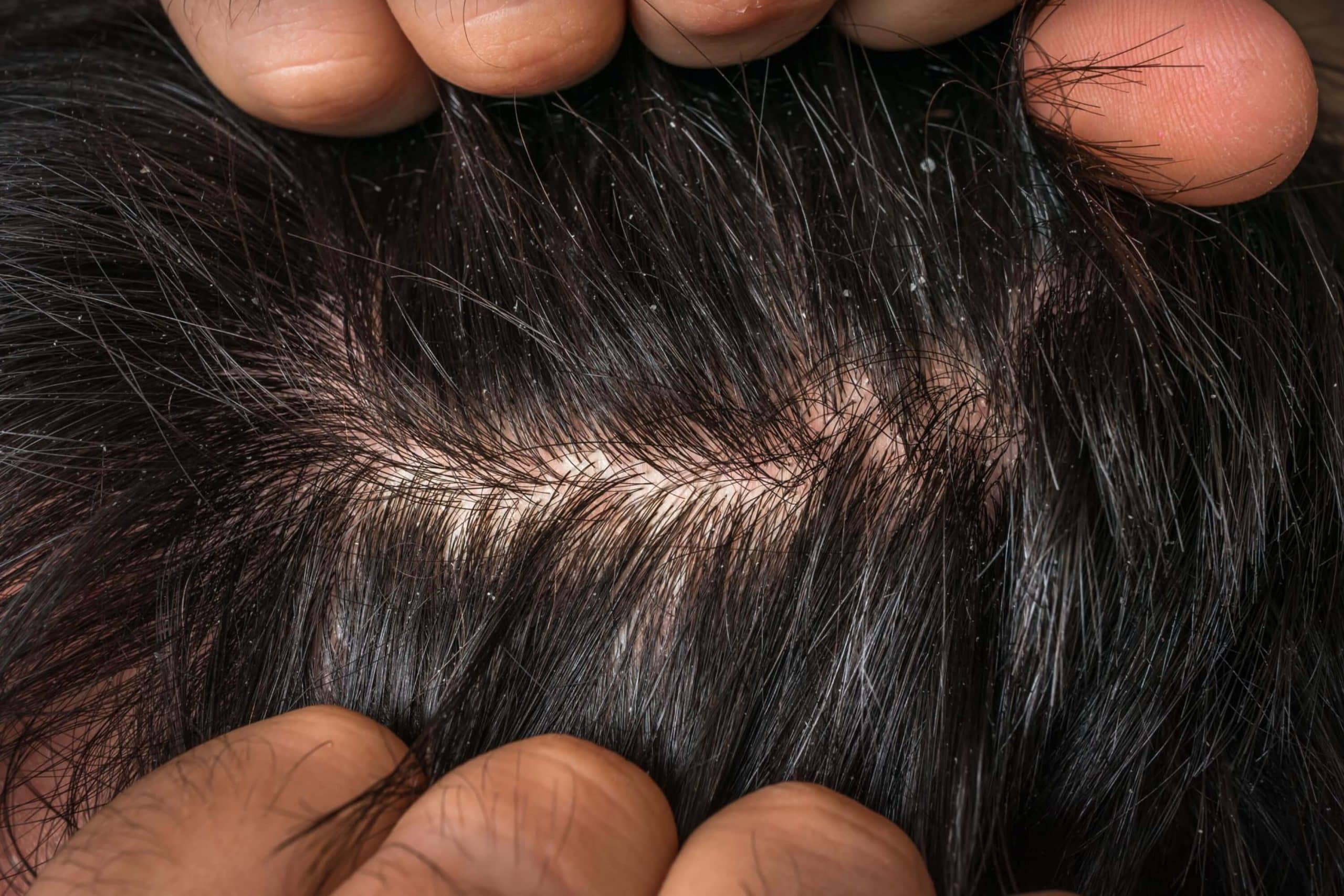
You Are Over-Conditioning
A hair conditioner is a good thing, but only when it is used correctly! Nore that it is just the ends of our hair that need to be conditioned. If you apply too much conditioner throughout your hair, it can do the following: the hydrating ingredients in the product will be left on the scalp. As a result, they will trap oil which will result in waxiness.
This is why it is important to not only use hair conditioner correctly according to the instruction. You should also consider if you are using the right type of conditioner that is suitable for your hair type.
If your hair is fine or thin, or prone to being oily, then you want to avoid using conditioner designed for someone with thick hair. Instead, opt for a lightweight conditioner, or even a spray conditioner!
As you can see, there are quite many different reasons and factors that can lead to the greasy and waxy film on your tresses. So if you want to cope with this unpleasant issue, we recommend you read on and learn how you can manage it.
You Wash Your Hair Too Frequently
Excessive hair washing is not as good and beneficial as you might have thought! We know, it is so tempting to assume that, the more often you wash your locks the cleaner and glossier they become, but in fact, the effect will be quite the opposite!
See, when your hair is washed too frequently, it leads to enhancement of oil in your scalp.
Our scalps produce natural oil and minerals, as you definitely know. Those components are important for its health, but they can be easily stripped away with excess use of shampoos and other hair care products. As a result, you will have greasy and weighed-down strands!
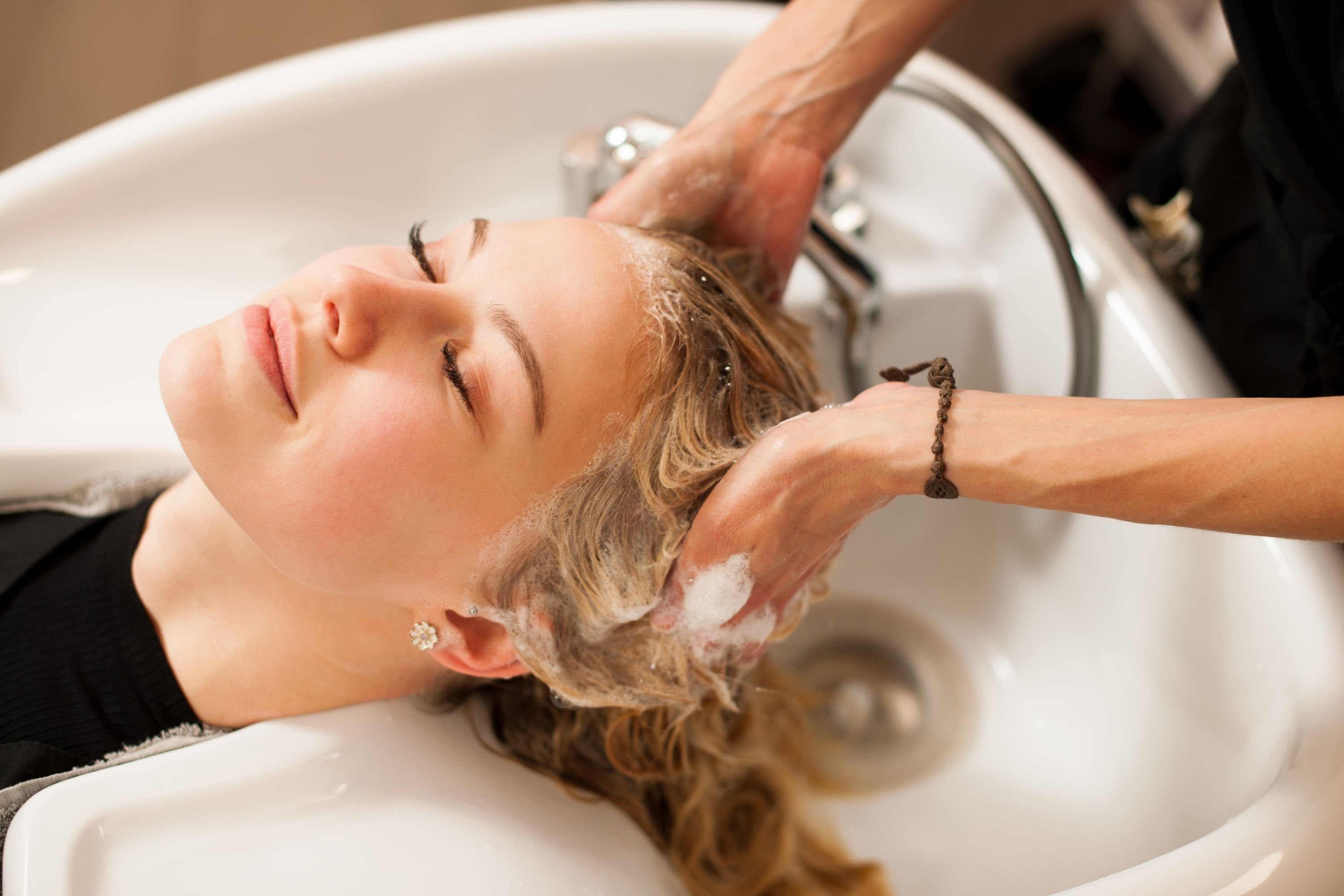
Do You Rinse Your Hair With Hot Water?!
This is another common mistake that also leads to oily and waxy tresses. Yes, taking a hot shower is very pleasing, especially in winter when it is so cold outside, but you should keep in mind that hot water can cause greasy buildup on your scalp!
When hot water touches the skin on our heads, it results in dehydration. That might be the biggest reason for the waxy buildup development.
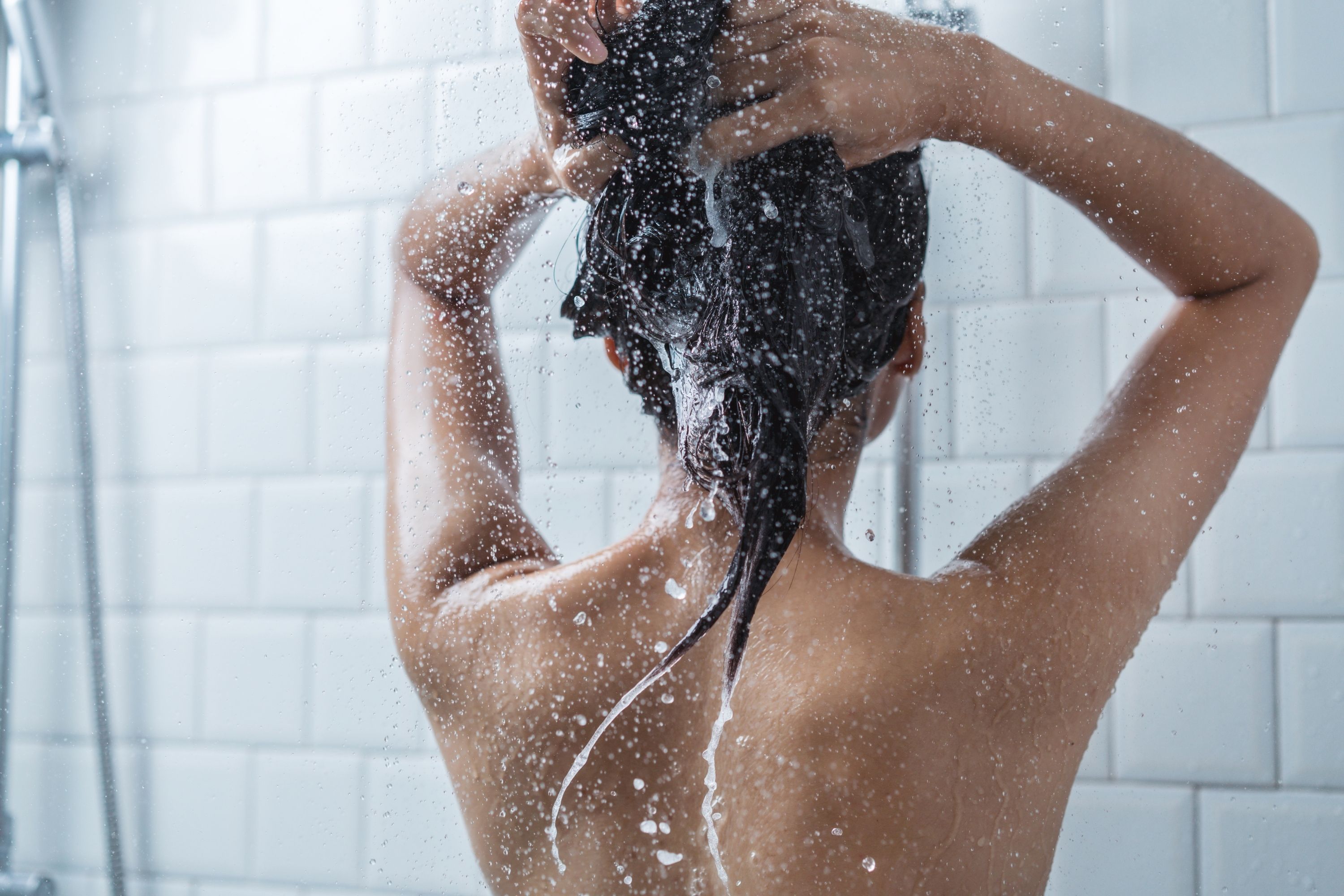
Are You Eating Healthy?
Healthy diet is another guarantee of smooth and glossy locks. Unfortunately, very few people adhere to this advice!
But you should know that excessive consumption of oily and fatty food affects your skin (all of your skin including your head!), and makes it prone to acne and other unpleasant issues.
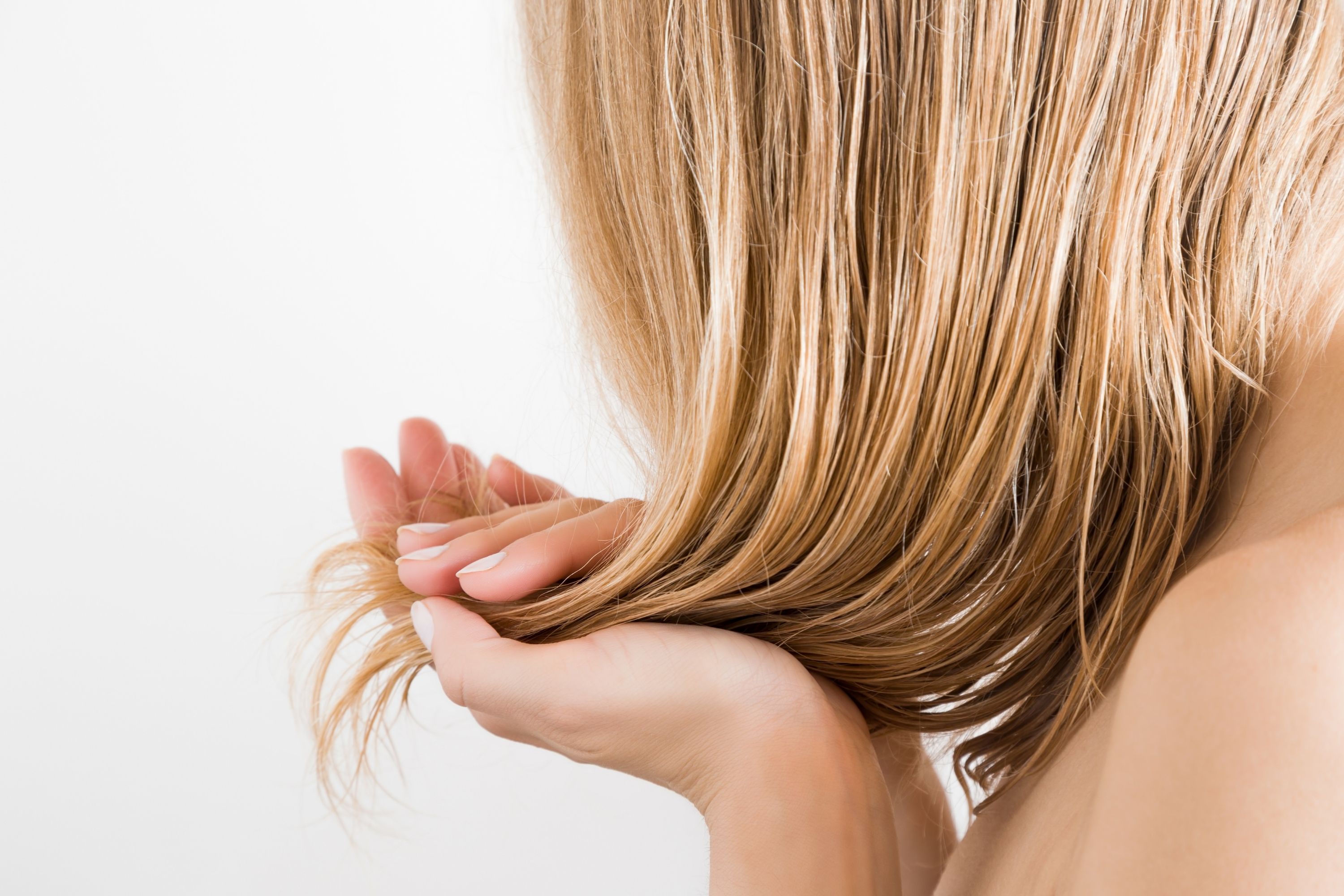
So naturally, unhealthy food choices will lead to excessive oily buildup in your scalp as well.
So if you want to get rid of this problem, revise your diet and exclude all the junk food, as well as too fat products. Start eating healthy consuming more fresh goodies like veggies, fruits, nuts, etc., and you will see how your skin will react!
Choose Proper Hair Conditioner
You might not be aware of this, but incorrect choice of your hair conditioner can also affect the state of your scalp and thus the condition of your strands! A wrong product may easily lead to quite a lot of damage.
So make sure that you choose the conditioner that suits your hair type.
For example, if your hair is not textured or damaged, feel free to buy a lightweight product. It will seal moisture in your tresses and provide them with proper and easy breathability as well.
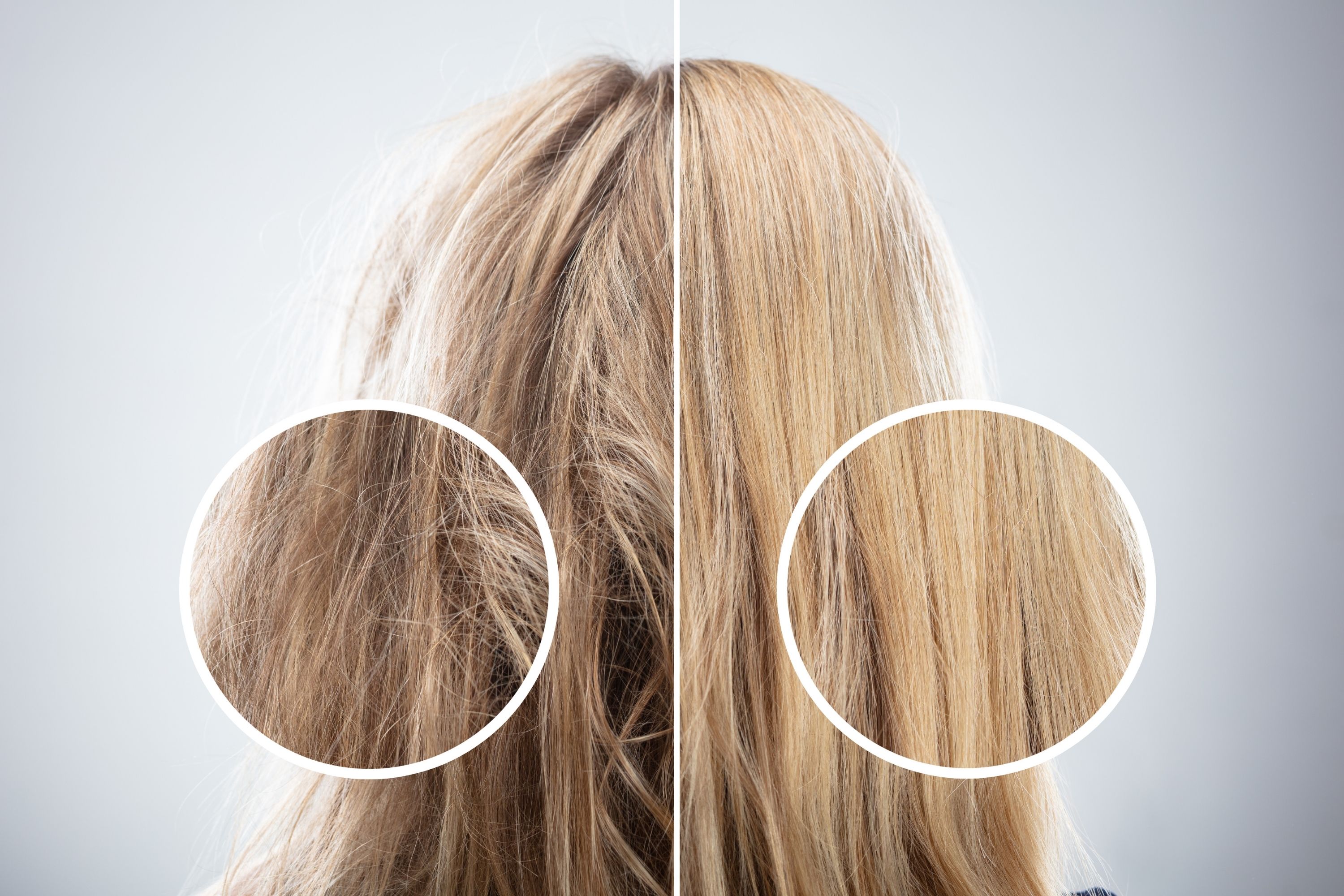
Wash Your Hair Correctly
Yes, you got it right. You also need to wash your hair correctly to avoid that annoying oily buildup later. But how do you do that?!
Don’t use too hot water first of all. Also, always comb your hair prior to washing since it will help to detangle the strands and make them easier for absorbing the washing product.
Use your fingers to gently massage the scalp while shampooing, and make sure you wash out the conditioner really thoroughly!
Otherwise, it will affect the pH of your scalp which may lead to the waxy feeling and appearance.
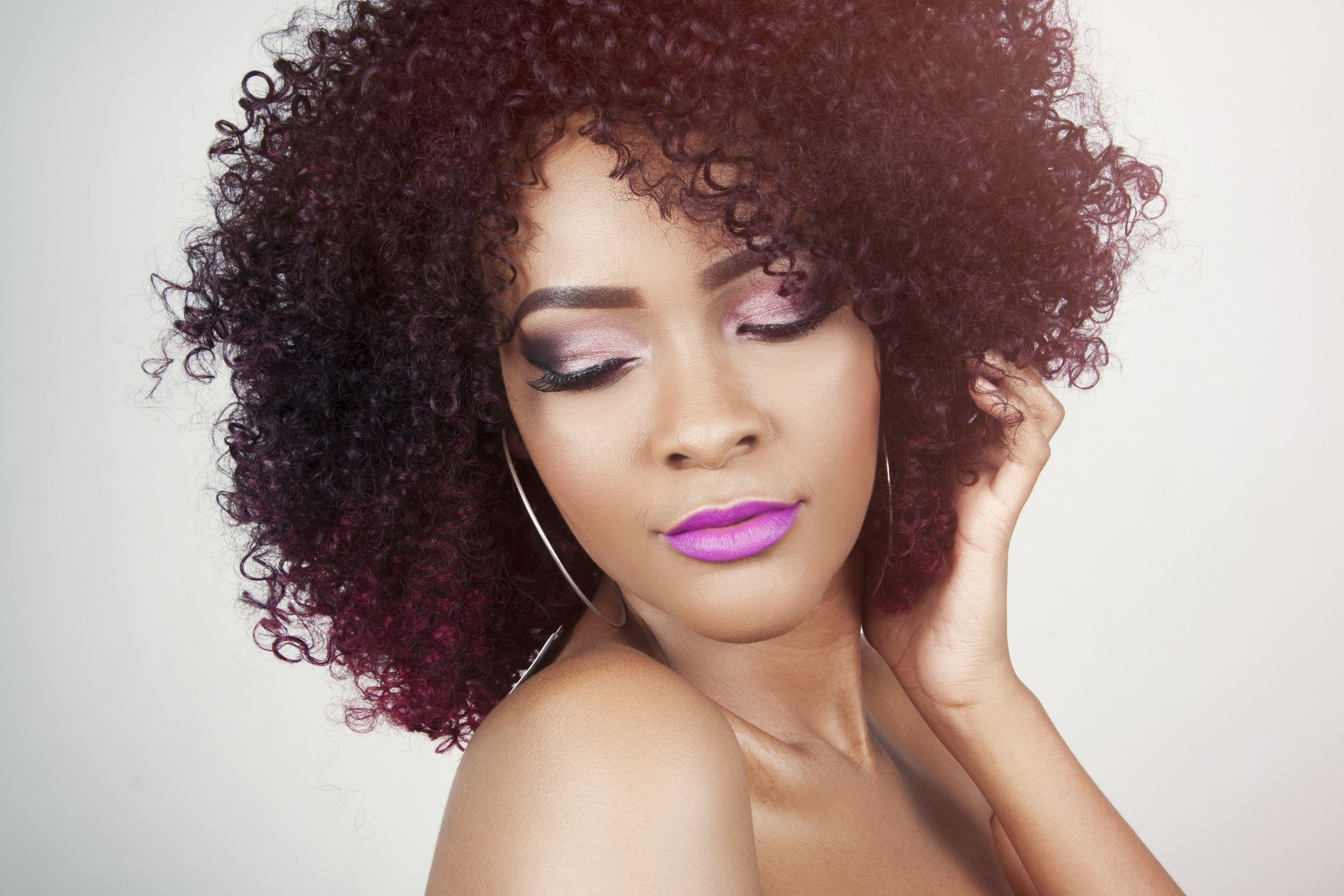
Pick Hair Accessories Correctly
Even your hair accessories matter! Consider their fabric and opt for smooth materials (for instance, silk or satin) for the hair ties since they do not absorb excess oil.
And remember that, using hair ties and scrunchies that are made of wrong fabrics could be a cause of the redeposition of oil in your scalp!
So these are the major and the most frequent reasons why your hair may end up being greasy and waxy.
However, the reasons may vary in two different cases: if your tresses tend to grease after you wash them and if you notice that waxiness after drying the mane. Let’s see why it happens like this.
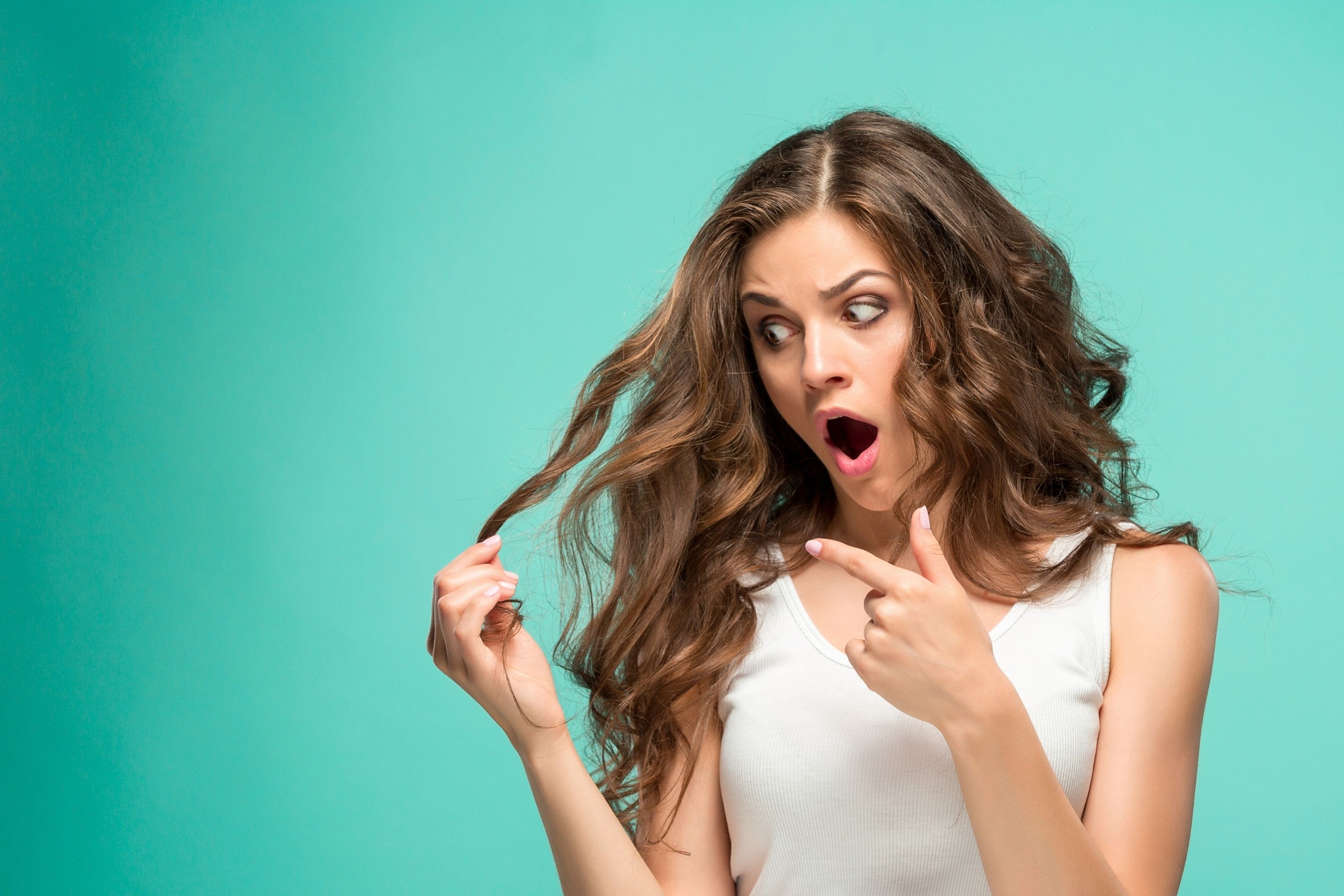
Why Does My Hair Feel Waxy After Washing?
If you have waxy and greasy hair after washing and you are tired of that, you might be wondering what the reason could be for this issue. In fact, there are a few factors that may cause such a state of your hair.
Seborrheic Dermatitis May Cause Waxy Hair
You may have a waxy scalp because of the eczema of the scalp, a skin condition that many people have experienced. Symptoms include oily scalps, skin flakes, red skin, itching, and more. It can be treated, but you may need help from a doctor.
Oily areas are the most prone to this skin condition and can cause waxy/greasy hair.
So if you are dealing with Seborrheic Dermatitis or an oily, flaky scalp, it can trickle down into the ends, resulting in a waxy or greasy texture.
Using the wrong shampoo and conditioner to treat your Seborrheic Dermatitis can make the situation even worse. It can cause product build-up and irritation, making it even more challenging to treat your oily, flaky scalp in the first place.
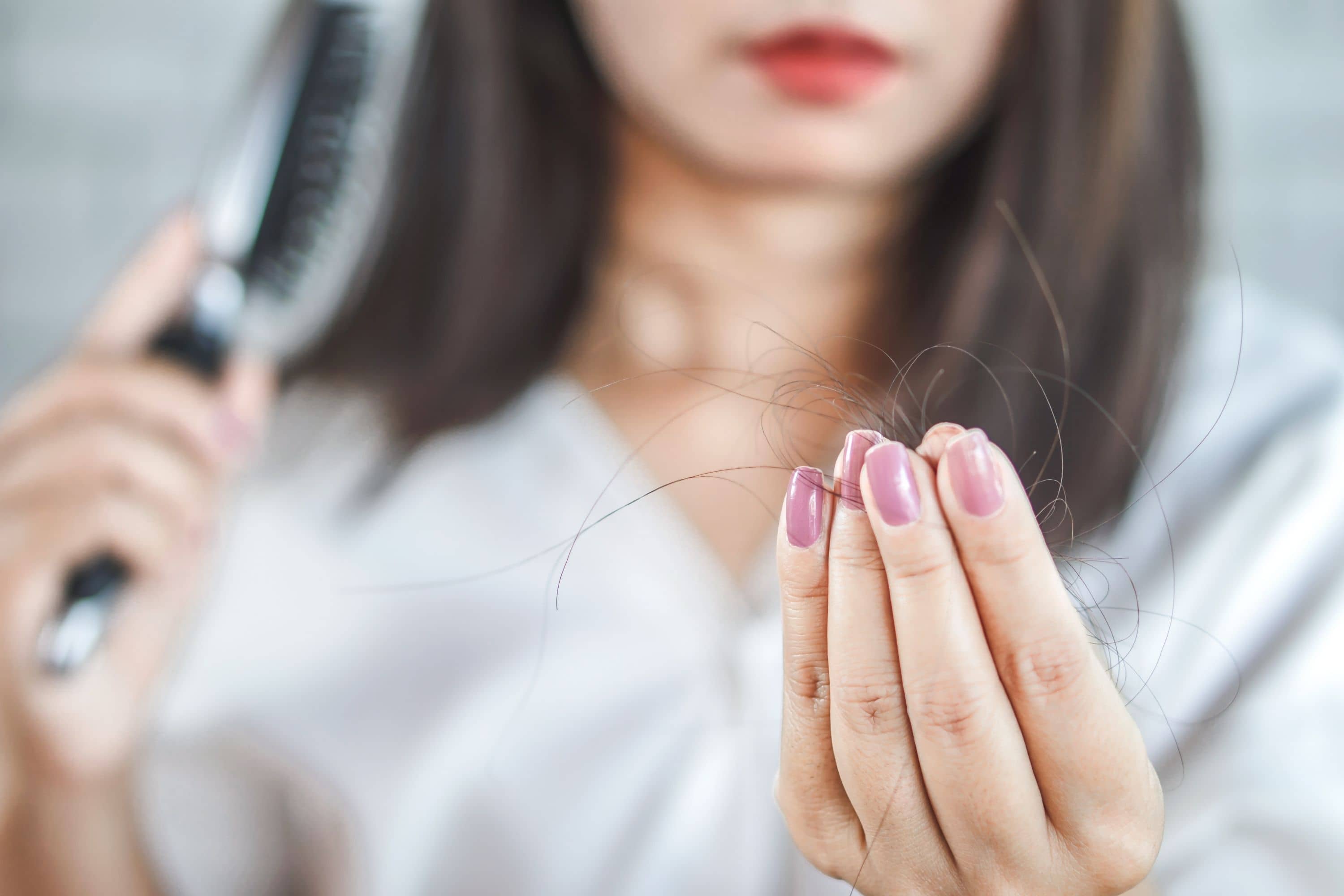
Waxy Product Buildup
If you style your hair daily or use a wide variety of hair products every day, it can weigh your hair down over time. Using a large amount of hair products can coat the strands and hold your hairstyle, but they might not always wash out properly.
Even shampoo and conditioner with sensitizing ingredients can lead to product build-up. The leftover residue from all your hair products can leave you feeling waxy and slowly damage your hair over time, leading to breakage and limp hair.
Shampoos and conditioners can also cause product build-up if they are not formulated with high-quality ingredients. Additional hair products like creams, gels, and sprays can also clog or affect hair follicles, impacting hair growth.
Finally, you need to remember that hair products can also be filled with silicones.
Conditioners contain silicones to achieve a soft and smooth finish, and so do most hair styling products. However, layering product after product can cause these silicones to build up and leave you feeling waxy.
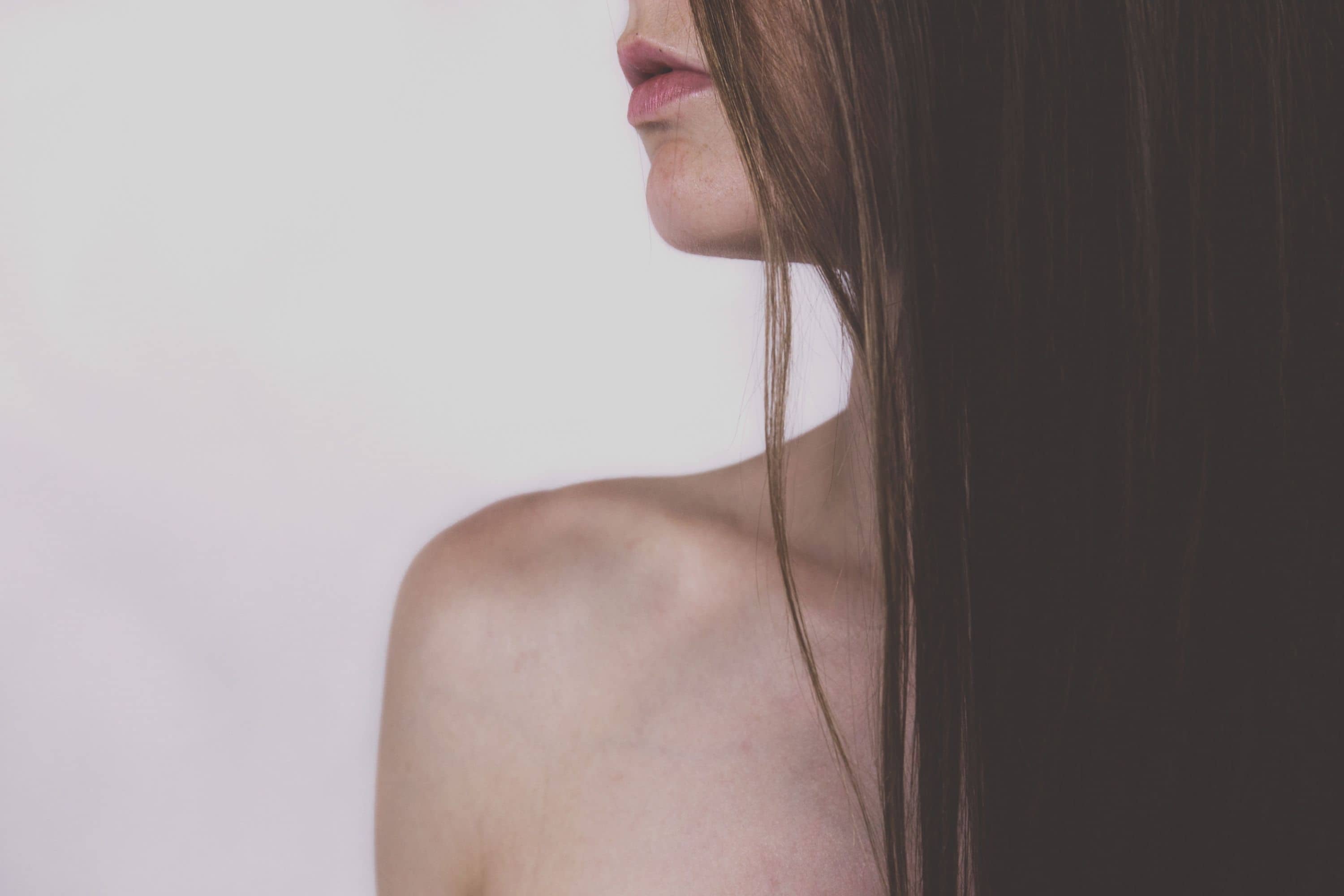
Health Issues
Hormone imbalance is another widespread cause of waxy hair, by the way.
Changing your hair routine is easy, and so is reducing the use of your hair products. However, if you have adapted your routine and tried everything in the book and your hair is still waxy or greasy, it may be time to call your doctor for a check-up.
Many of us aren’t even aware that we could be dealing with a hormone imbalance.
They are hard to detect, and their symptoms can often be confused with another issue. For example, our health and hormones affect the health of our hair and scalp.
Stress, vitamin deficiencies, diet, and various other factors that trigger your health and hormones will, in turn, affect your hair. So, if your hair is limp, greasy, or dull, it may be time to figure out if there are any underlying causes to your waxy hair.
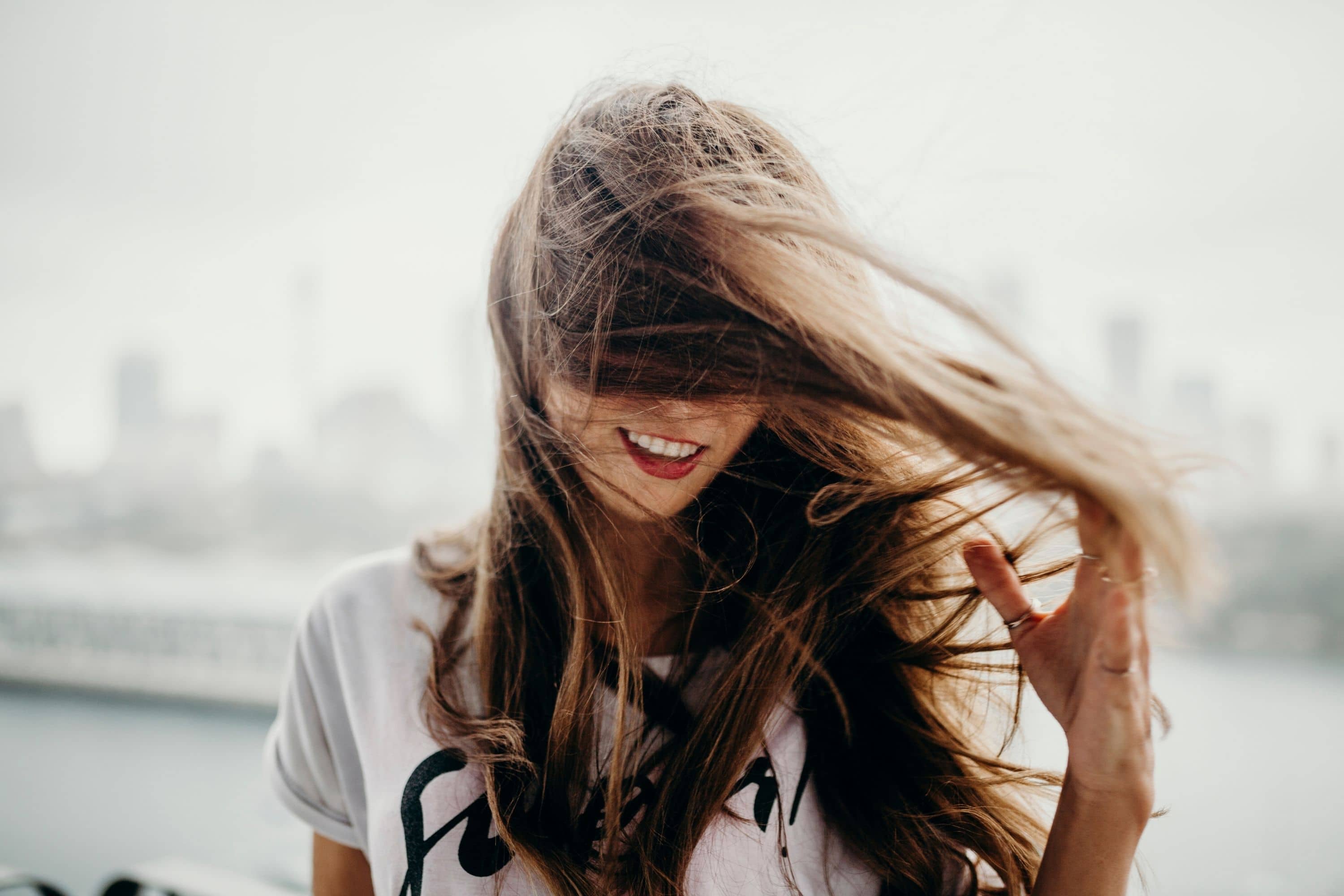
New Environment
If you have recently moved to another city or another climate zone, your hair may react to that with the development of that oily residue.
Environmental damage can impact your hair being waxy and greasy, especially if you live in a densely populated area.
Hair can easily absorb the air around us, and it makes sense why pollution can affect the strands, scalp, and skin.
Therefore, adapting your hair routine and diet to combat your environment is crucial for your health.
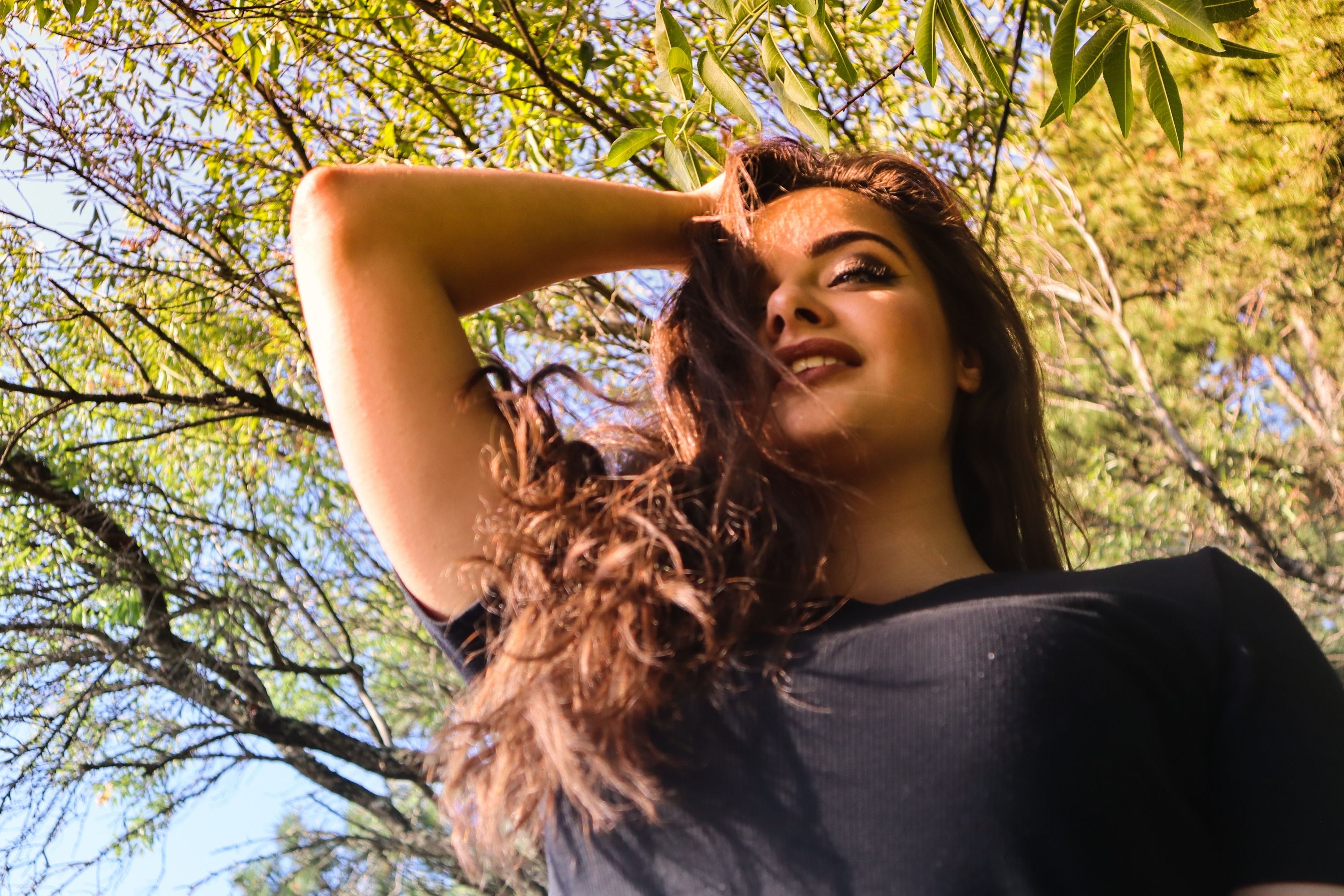
How to Fix Waxy Buildup On Your Hair?
Alright, now you know what factors can lead to your hair getting waxy way too quickly. But how this can be fixed, you may wonder? In fact, there are several options that you can opt for, and below you can find all of them described in detail.
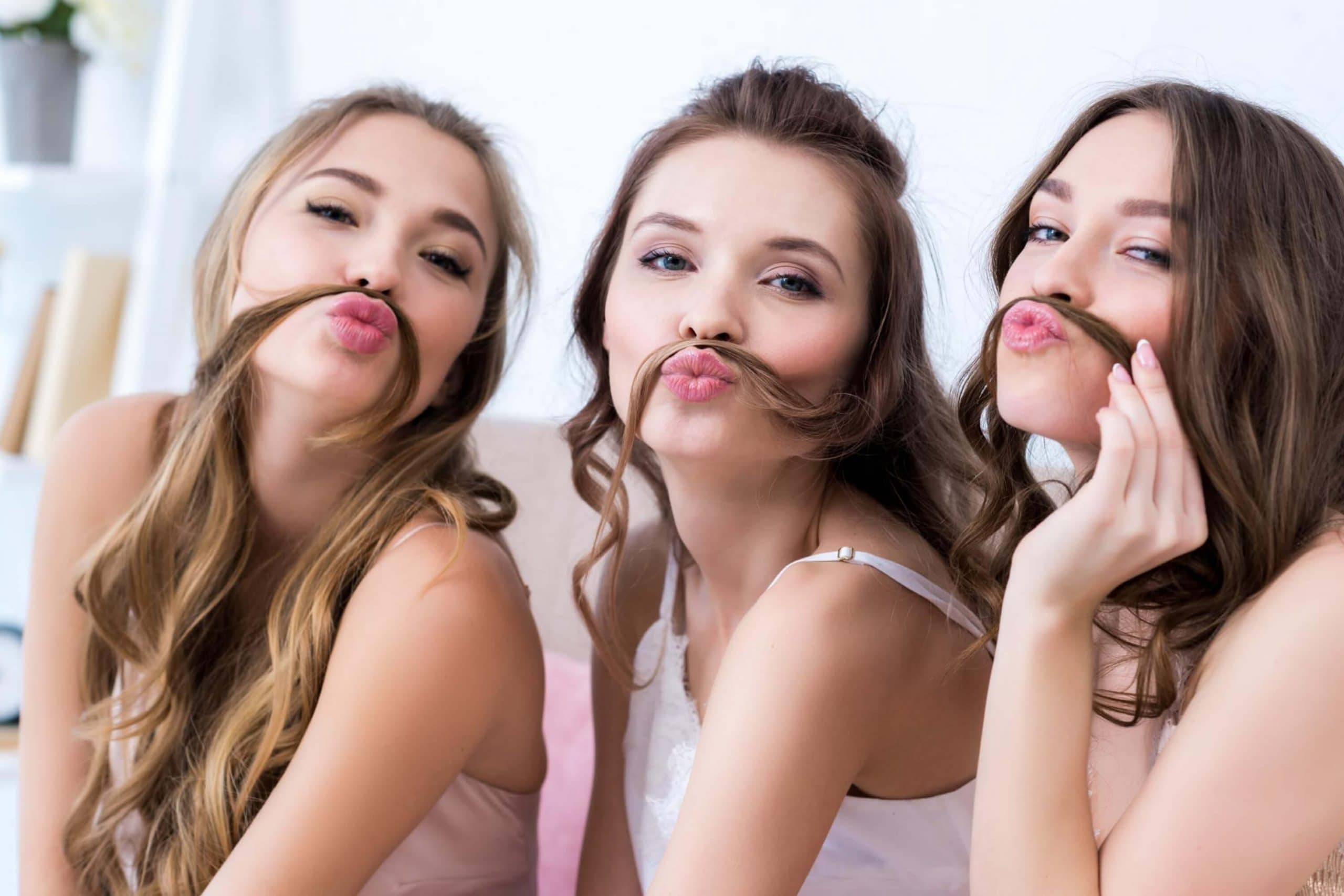
Use a Clarifying Shampoo
Clarifying shampoos are among the most effective products made for the treatment of waxy or excessively greasy hair.
These shampoos are specifically designed to reach through product buildup and make your hair soft and clean again.
However, note that you should use this shampoo only once or twice a month! See, they are much stronger than regular shampoo, this is why they need to be used carefully.
However, you can use clarifying shampoo more frequently if you have straight or fine hair. It’s because the scalp’s natural sebum is more likely to coat the entire hair strand in this case.
Change Your Diet
Healthy hair is guaranteed by both correct care and a proper diet. If you consume too much unhealthy and fatty foods, those can cause your scalp to produce excess oil. As a result, a waxy buildup will show up pretty soon.
The best thing you can do is to follow some simple tips:
- avoid junk food
- reduce fatty foods
- reduce sugar
- drink enough water
- eat more fresh fruits and vegetables
This will help your body regulate its sebum production much better.
Get a Filtered Showerhead
If you think that it is hard water that is the culprit, consider installing a filtered showerhead.
The filter will trap the buildup-promoting minerals before they settle on your hair. Over time you will notice how the look and feel of your hair and scalp improve.
Why Does My Hair Feel Waxy After Drying?
You may also have a waxy buildup on your scalp after you use a hair dryer, by the way. Moreover, some ladies report that they have this feeling on their strands even if they air dry their hair! So why does that oily film appear?
You Color Your Hair Too Often
A wax buildup on hair may be a result of frequent hair dyeing procedures or bleaching. If you perform these services at home or with an inexperienced hairstylist, your hair could have gone through severe trauma.
You can color or bleach hair while keeping its integrity, but it can go so wrong so fast.
Coloring or bleaching your hair incorrectly can eventually cause breakage, split ends, gummy strands, and brittle hair textures.
You may compensate for this loss of strength with moisturizing products that coat the strands and disregard the problem.
It’s recommended to make sure you are coloring or bleaching your hair safely to avoid a waxy result after drying your hair.
Keeping your hair’s integrity during coloring treatments will help you avoid any greasy, waxy, or limp strands from taking place.
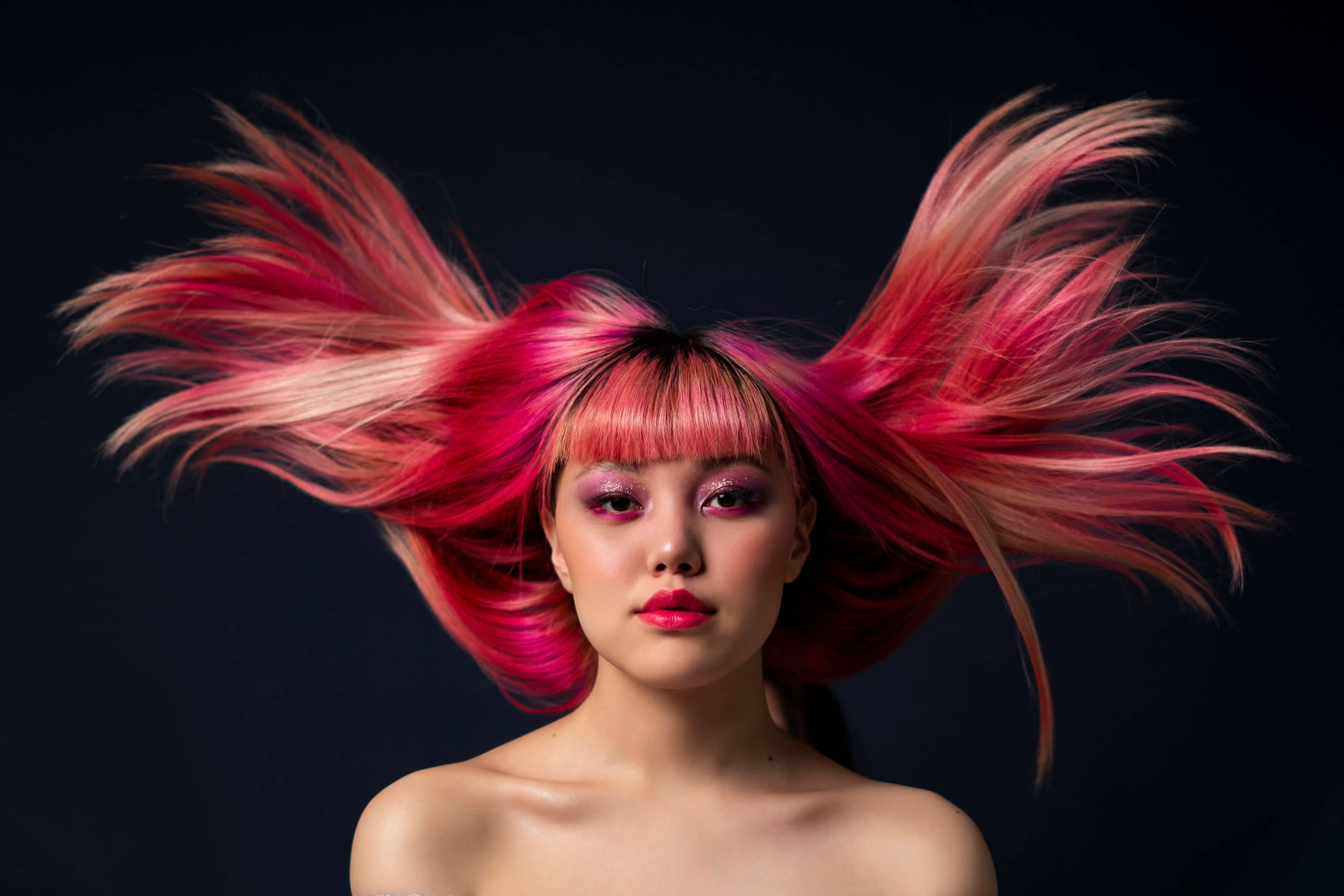
Heat Styling
Your hot tools can be doing more harm than good. If you are not using a heat protectant, you may expose your strands to severe damage. Also, avoid using hot tools on damp hair. This can increase the risk of breakage and split ends.
The improper use of hot tools can result in hair that is stiff, lifeless, and waxy. Your hair can feel crunchy and like there is a film coating over your strands. A heat protectant with beneficial ingredients that also protect against UV rays can save your hair.
The continued use of heat styling with the wrong techniques can even result in the hair snapping off completely. A blowdryer can make your life easier. However, it’s not worth degrading the integrity of your hair.
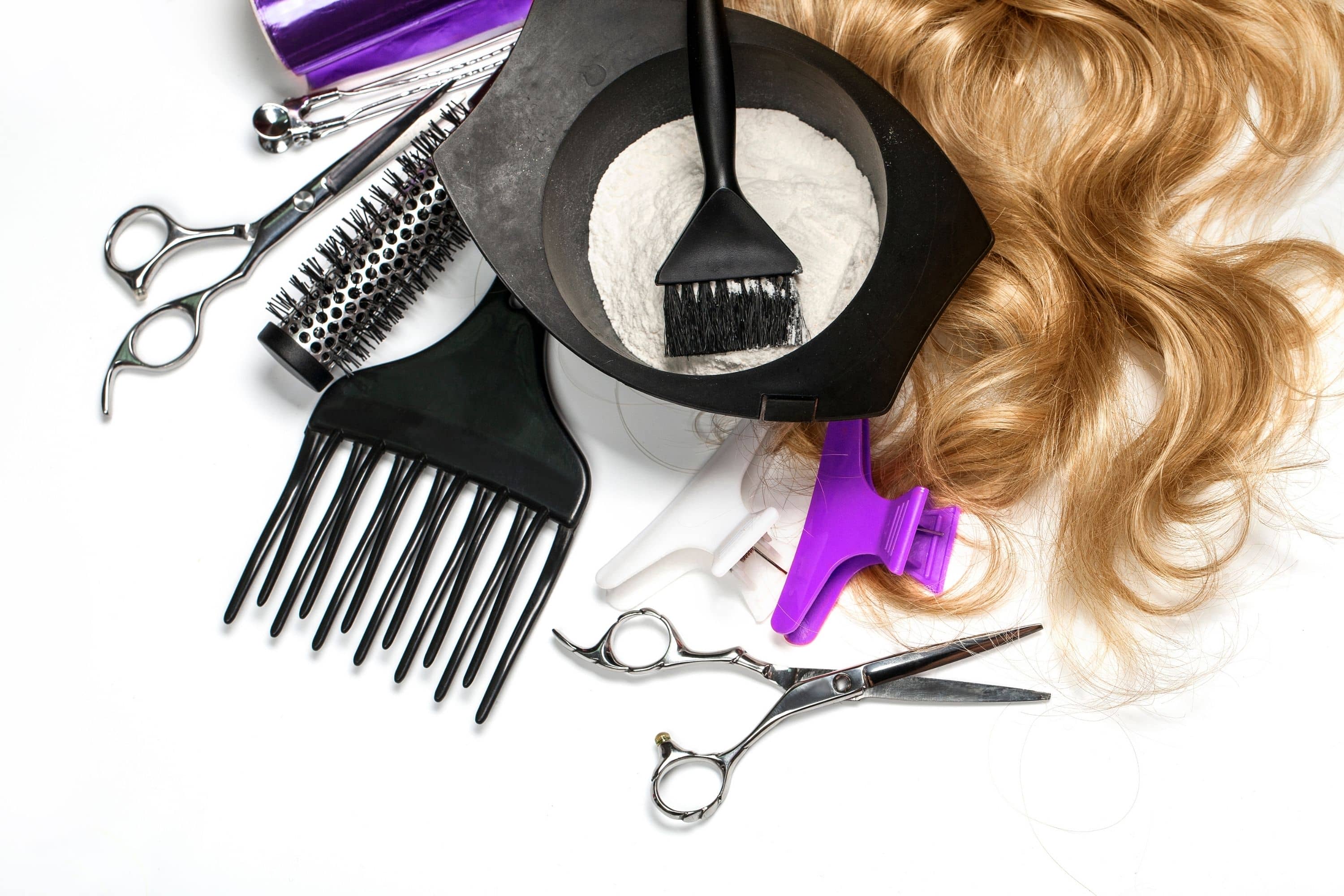
Improper Rinsing Of Your Hair
When washing your hair and applying any care products afterward, make sure that you rinse off the shampoo, conditioner, and other products thoroughly. There must be no residue left in between the tresses!
Because if you leave it there, it will result in that annoying waxy feeling on your locks.
Also, ensure that you do not use too much of the hair care products. If you overboard your hair, it will leave your hair with an unwanted heavy residue, which could be the reason why your hair is feeling waxy.
Therefore, your products should be used sparingly or as instructed on the labels to achieve the best results.
Now that you are aware of what causes the issue, let’s see how it can be solved.
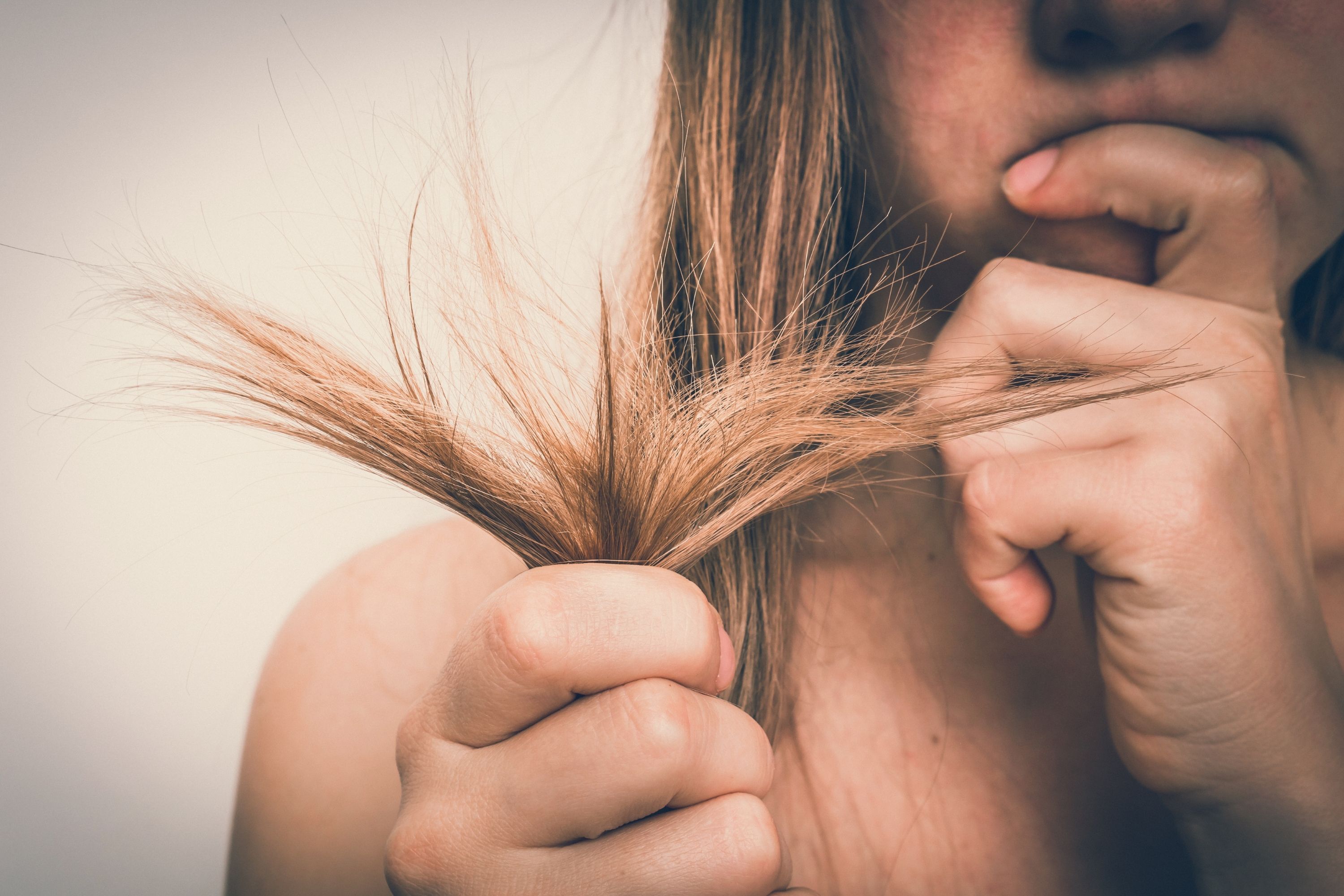
How to Fight That Waxy Buildup On Hair
If your hair feels waxy after shower no matter what you do to it, it is time to figure out what steps you can take in order to cut this all down and finally forget about oily and waxy strands forever!
Below you will find a few easy and yet very useful tips on how to fix waxy hair at home without the help of a hair professional.
Use a Lightweight Keratin Shampoo
Your shampoo and other hair care products should be free of harsh chemicals, as well as sulfates, parabens, and other hazardous agents.
So stick to products that have a detoxifying effect and won’t strip the natural oil out of your scalp and hair!
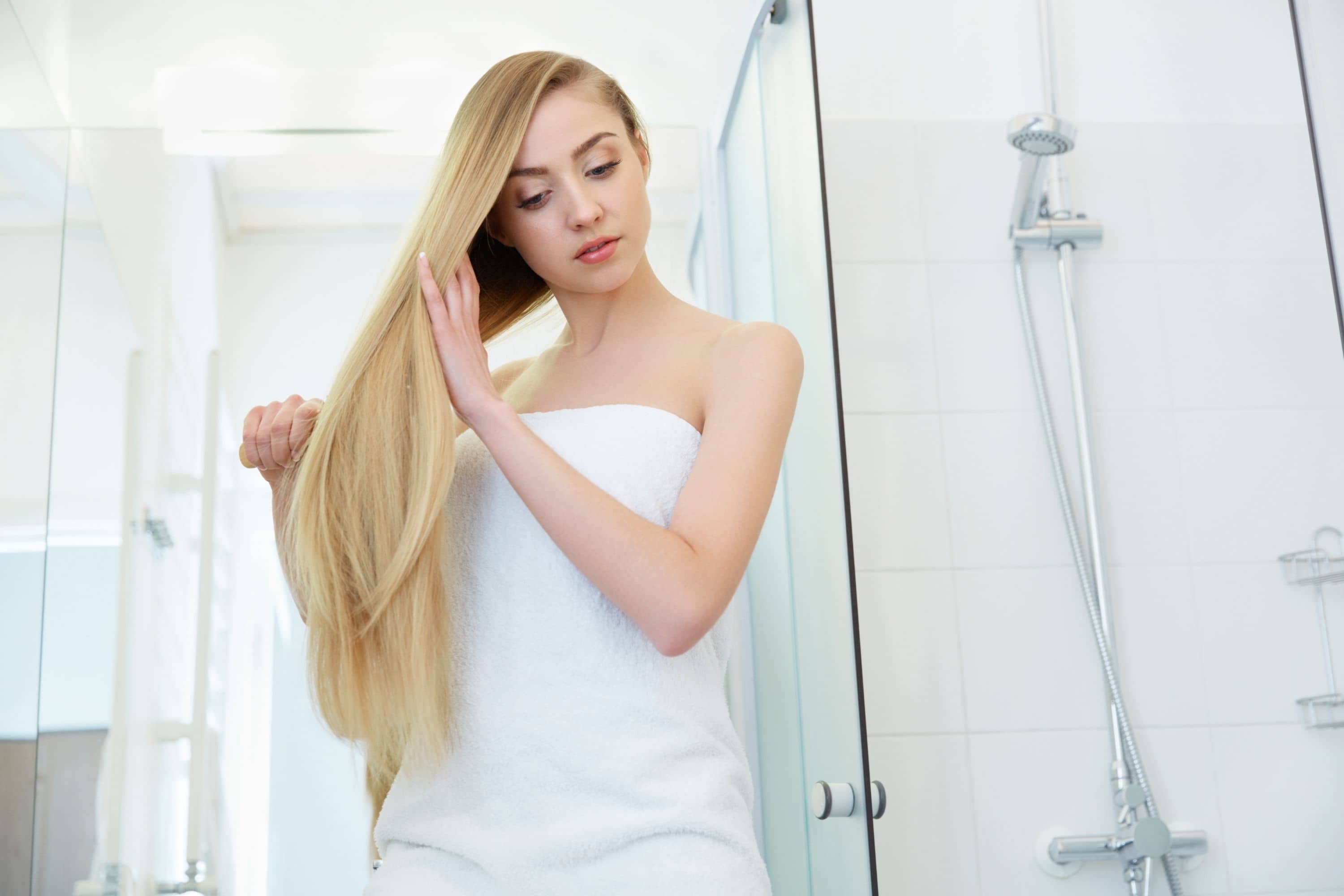
Eat Healthy
A lot of fresh products, such as veggies and fruits, along with fish and other seafood, nuts, and cereals will ensure that your hair is in brilliant condition.
If you are not sure about how to plan your diet, consult a doctor or a nutritionist.
They will help you to figure out what products are good for you and what are not.
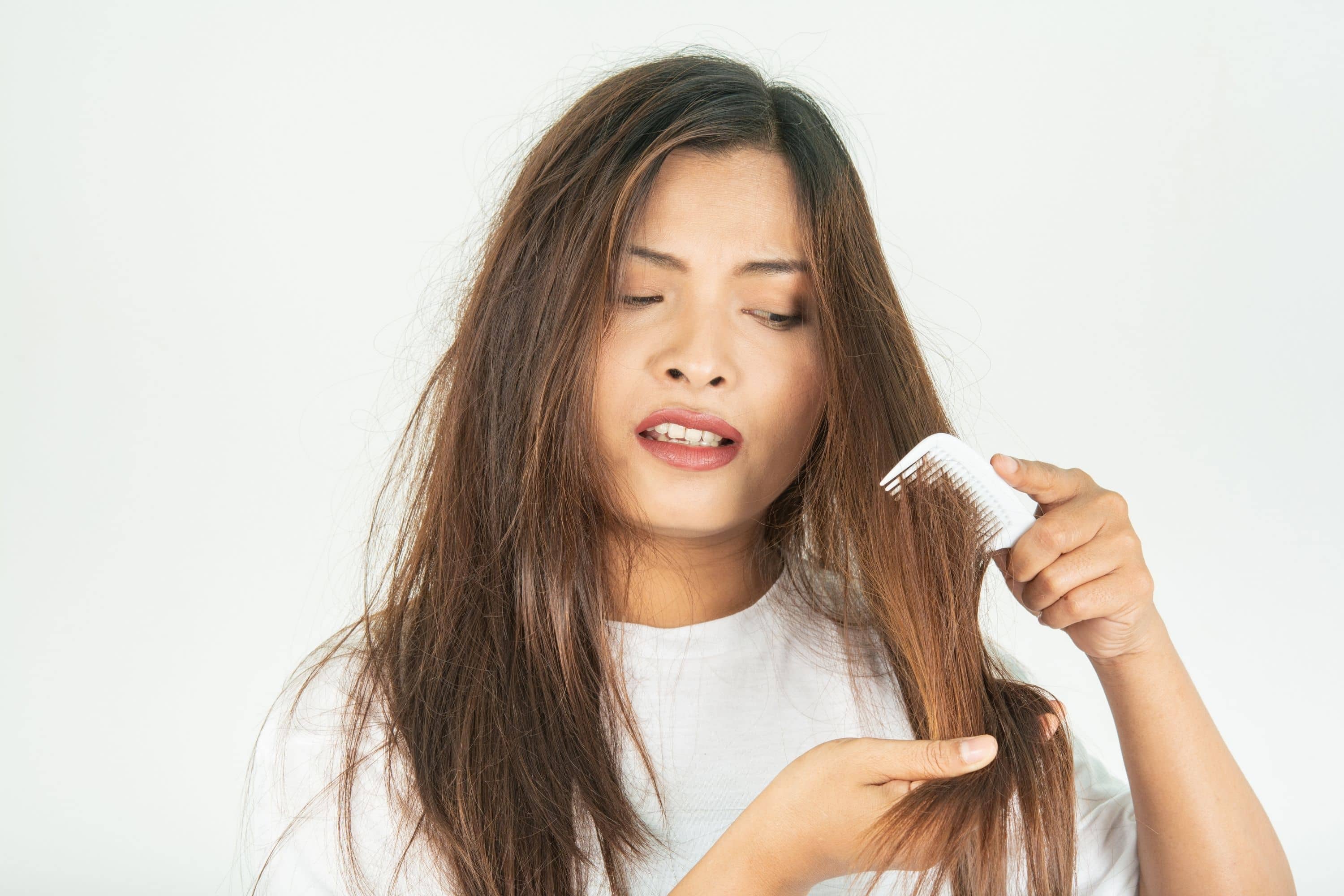
Check Your Health
Checking yourself and the health of your scalp in particular can also help. If you have any scalp health issues, or there is something wrong with your hormone balance, you might need medical treatment to get rid of that oiliness.
Well, now you are fully informed on what causes waxy hair and how to deal with that issue effectively. We are sure that you adhere to our suggestions and from now on, your strands will remain silky and smooth.
DIY Hair Treatment Remedies
Of course, now there are plenty of hair care products on the market including those that fight the excess sebum and oiliness.
However, if you want to try something natural and also affordable, consider using one of the following DIY remedies:
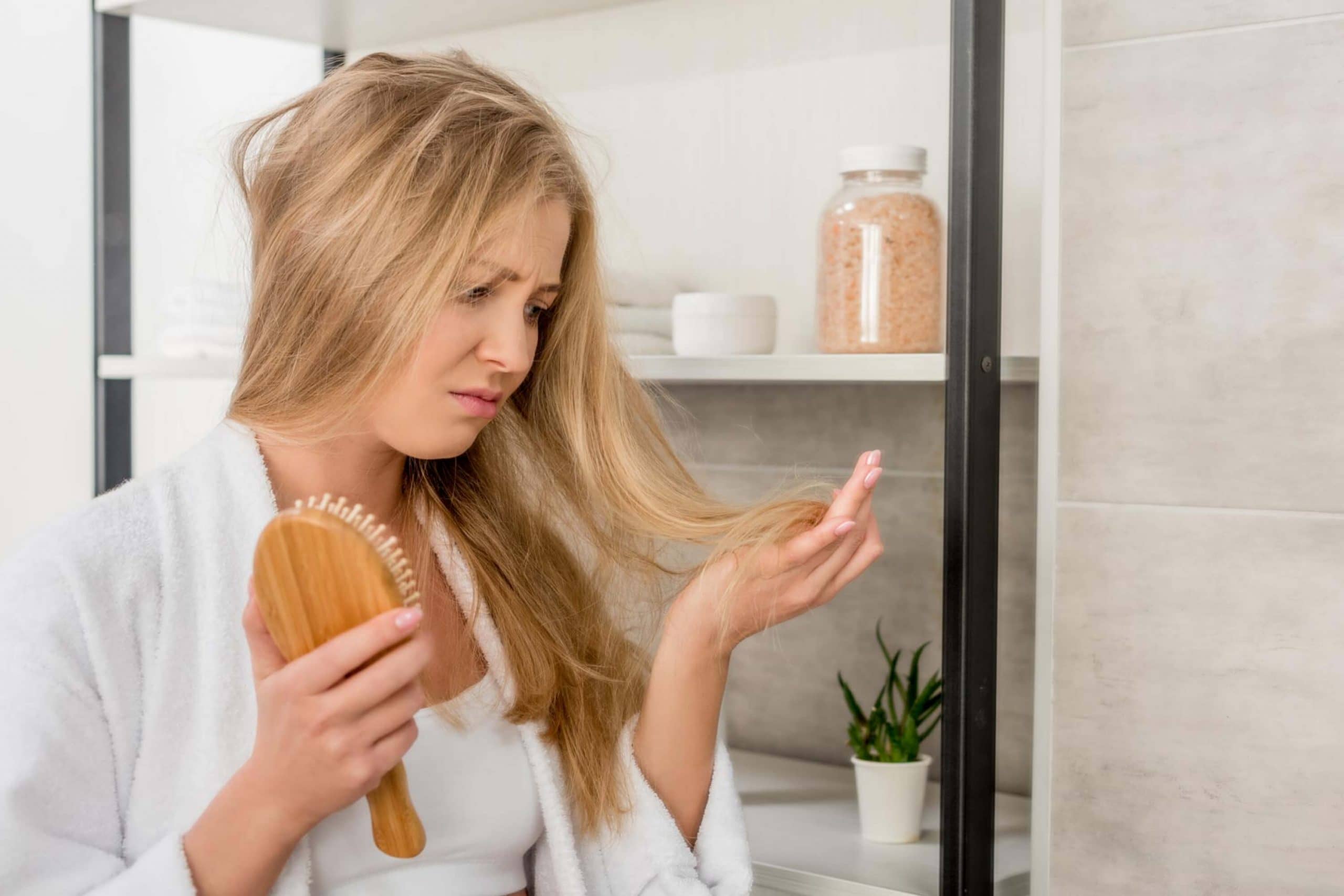
Rinse Your Hair With Baking Soda
Baking soda is something all of us have in our kitchens and it costs so little! It is made of a naturally clarifying compound called sodium bicarbonate which makes this powder a great anti-grease product.
To use baking soda as a hair treatment, follow a few easy steps:
- Mix two parts baking soda with one part water until you get a paste.
- Saturate your hair with warm water and spread the paste over in a thick layer.
- Leave the paste on for up to half an hour.
- Rinse your hair thoroughly with warm water.
- Shampoo and condition your hair as normal.
Use Apple Cider Vinegar Rinse
Vinegar is able to cut through waxy buildup thanks to its acidic nature. And since apple cider vinegar is also antimicrobial and anti-inflammatory, it can be used as a treatment for the root cause of the waxy buildup.
To rinse your tresses with apple cider vinegar, do like this:
- Mix two parts of water with one part of apple cider vinegar.
- Shampoo your hair as usual.
- Saturate the tresses and scalp with the vinegar solution. Simply pour it on or pulverize it with a spray bottle.
- Let the mixture sit on your hair for up to five minutes.
- Rinse thoroughly.

Finally, remember to follow this procedure up with your normal conditioner, and style your hair as usual if you do it.
Well, now you know what can cause the excess waxy buildup on your mane and how this issue can be coped with.
With all that information in mind, you will now be able to figure out what exactly makes your tresses get oily and how you could make them look and feel clean and healthy again.
[wp-faq-schema title=”Frequently Asked Questions”]
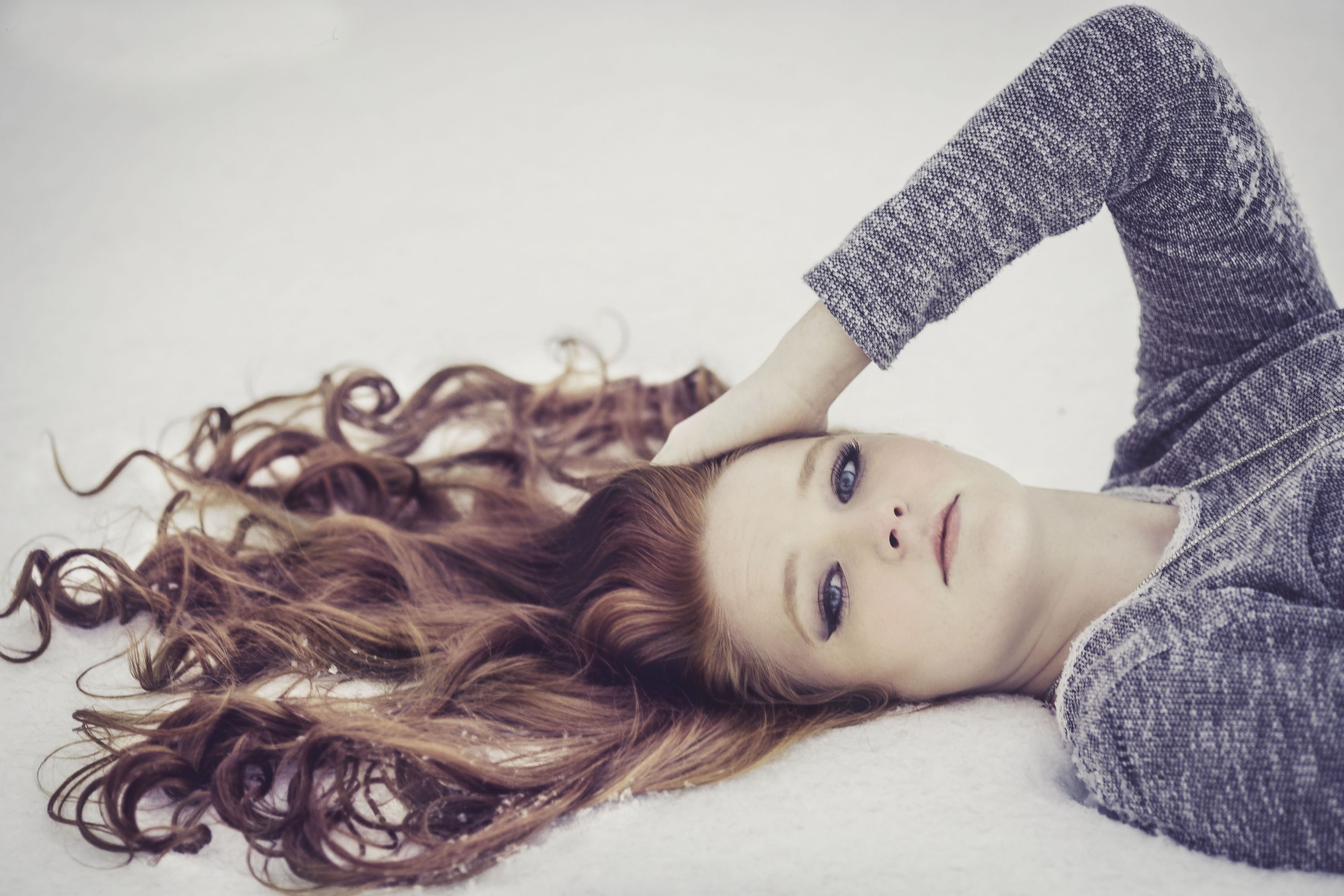
Can waxy scalp lead to hair loss? I have been fighting this problem for almost two years and I’m pretty sure my hair became thinner! Could that be the reason?
In fact, I guess it can. Waxiness is developed in the scalp which means that buildup blocks the skin pores, etc. In addition, it makes your hair heavier. So yeah, I guess it can lead to hair loss.
Why does my hair feel waxy after coloring? Is it because I apply the dye improperly?
It can be because of the dye itself, not the way you apply it (but it must be applied correctly of course!). Do you color your hair frequently? If yes, this can be the reason, by the way!
I noticed that my hair started getting oily much faster than before. My health is ok and it’s not the water and/or my brushes and combs. What else could I do to fix that?
Try to change your hair products – shampoos, conditioners, etc. See, your hair products could be leaving behind a waxy film, so you should consider using fewer products or switching them out entirely.
And one more thing: when applying hair products, remember that less is always better! One small squirt of shampoo is enough. Excess product application also leads to excess oiliness.
How much shampoo is it recommended to apply to avoid the product buildup on tresses? My hair is pretty long (almost waist-long), so I’m always worried I use too little.
Use only the recommended amount. You can find it on the back of the shampoo bottle. Usually a coin-sized dollop is ok to prevent unnecessary product buildup. You can also switch to lighter, water-based formulas and avoid additives like silicone, petroleum, heavy oils, and wax. This will keep your tresses oil-free.
Thank you for such a useful article! I always find a lot of handy information in your blog! Could you please share some tips on how to get rid of waxy feeling in hair?
We would recommend you use a clarifying shampoo (it’s also known as a purifying or deep cleansing shampoo). It’s one of the most effective ways to treat waxy and greasy hair. This shampoo is specifically designed to cut through product buildup and make your hair soft and clean.
Why does my hair feel like straw each time I wash it? I tried many different shampoos including sls/sles-free and paraben-free. I tried organic shampoos as well. But this feeling of dryness is always there, more or less. How to get rid of it completely?
Well, I’m not a hair specialist but I know that straw-like hair is often the result of common hair care oversights. E.g. you might be using drying and styling tools like dryers, curling irons, electric rollers, flat irons at too high setting. Or perhaps you’re using heat-based drying and styling tools too frequently. If you’re shampooing too often, this could also be the reason.
I’ve recently bleached my hair but now I notice that the strands feel waxy a bit. Why does my hair feel waxy after bleaching? Is it normal? Will this feeling go away itself?
You might have this feeling because your hair has become oversaturated with products. The best way to fix gummy, waxy-like hair is to use a deep conditioner or hot oil treatment. They will help you add moisture and shine to the hair.
Hello! I’m here for your advice and help folks! Why does my hair feel gummy? If any of you had this issue, I’ll be grateful for sharing any tips on how to fix that with me!